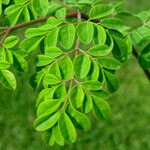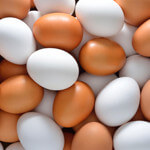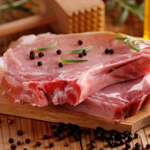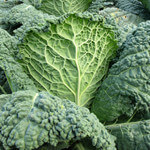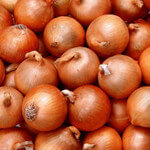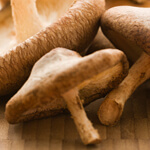 The shiitake, also called the black forest mushroom and the oakwood mushroom in English-speaking countries, is an edible brown mushroom that is native to Japan, China, and Korea. It has been cultivated for over a thousand years, and fresh and dried shiitake remain popular in East Asia today. Like maitake, which bear a similar nutritional profile, shiitake is commonly used in traditional Chinese medicine due to its alleged healing properties.
The shiitake, also called the black forest mushroom and the oakwood mushroom in English-speaking countries, is an edible brown mushroom that is native to Japan, China, and Korea. It has been cultivated for over a thousand years, and fresh and dried shiitake remain popular in East Asia today. Like maitake, which bear a similar nutritional profile, shiitake is commonly used in traditional Chinese medicine due to its alleged healing properties.
Though less popular in the West than the East, shiitake are nonetheless prized in North America and Europe for their robust taste, curious texture, and nutritiousness.
List of Health Benefits
Immune-boosting and cancer-fighting properties – According to the Sloan-Kettering Cancer Center, shiitake mushrooms contain an active compound called lentinan (a form of beta-glucan) that stimulates the immune system, which in turn activates cells and proteins that can inhibit cancerous growths. A 2011 study by researchers at the Chinese University of Hong Kong also found that the shiitake is a good source of antioxidants such as selenium, which can eliminate the cancer-causing effects of free radicals.
Reduces cholesterol – According to researchers at the Lulea University of Technology in Sweden, a compound in shiitake called eritadenine has the ability to lower cholesterol. Another, unrelated study by researchers at the Obihiro University of Agriculture and Veterinary Medicine in Japan found that rats who ate shiitake and maitake excreted cholesterol, resulting in fewer cholesterol in their bodies.
Prevents thrombosis – Since shiitake mushrooms are rich in lenthionine, a natural compound that prevents platelets from aggregating, they are excellent at preventing thrombosis (clots of coagulated blood that inhibit blood flow). Therefore, if you’re concerned about developing DVT on an upcoming long-haul flight, consider eating some shiitake mushrooms, or a meal that contains their oil, as a preventative measure.
Weight loss properties – One 100 gram serving of cooked shiitake contains a mere 56 calories, no fat at all, and a respectable two grams of dietary fiber. This fact, coupled with shiitake’s low glycemic index score (meaning that they don’t affect blood sugar levels), makes them the perfect food for a weight loss diet. Don’t eat too many, though; excessive consumption of shiitake can cause diarrhea and abdominal bloating.
Rich in copper – 100 grams of cooked shiitake contain 0.9 milligrams of copper, which is 45 percent of an adult’s recommended daily intake (RDI). This is unusually high, even for a fungus, and makes shiitake one of the best plant-based sources of copper in the world. Copper is an essential trace mineral that works in synergy with iron – another mineral that shiitake also contain – to form hemoglobin in red blood cells, which in turn carry oxygen from the lungs to the body’s cells. A deficiency in copper can lead to anemia, poor skin, prematurely graying hair, and even osteoporosis.
100 grams of cooked shiitake mushrooms also provide us with 1.6 grams of protein (three percent of our RDI), various amounts of B-vitamins (including 36 percent of our RDI of pantothenic acid), and between 3 and 10 percent of our RDI of manganese, zinc, potassium, phosphorous, and magnesium, which all work in tandem to aid our body’s natural processes.


